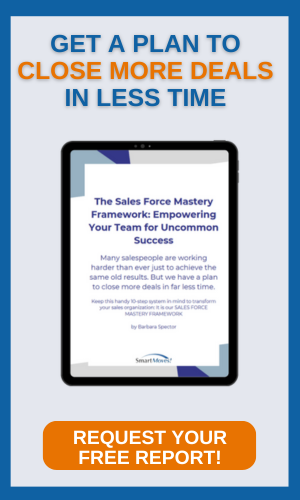One of my mentors and strategic partner, Lou Adler, for whom SmartMoves has conducted Performance Based Interviewing workshops, wrote this great article. It is so “right on” that I thought our audience should read it.
 What do the best people do differently than the rest?
What do the best people do differently than the rest?
This week I started reading Switch, by Chip and Dan Heath, describing how to use benchmarking techniques as a means to implement change. This reminded me that in the late ‘80s I read Tony Robbins’ first book, Unlimited Power, describing how he benchmarked the best .45 caliber shooters to develop a training program for the U.S. Army. Based on this I began to benchmark best hiring practices to improve my search firm’s ability to find and hire top performers. The process eventually became Performance-based Hiring. There were two parts to this: first, what the best hiring managers did differently; and second, what the best people whom they hired did differently. Here’s the quick synopsis.
What the Best Hiring Managers Do Differently:
- Clarify expectations upfront. Although Gallup made a big deal about this in the late ‘90s with their book, First Break All of the Rules – What the World’s Greatest Managers Do Differently, clearly describing the performance requirements of the job was what the best managers always did. I refer to these as performance-based job descriptions. They describe the 4-5 critical performance objectives required to be considered successful (the upper 25%) in the role.
- Refuse to compromise on their demand for hiring top talent. Just like the best coaches, the best managers didn’t need to read Jim Collins’ Good to Greatto know that getting the best people on the team was the key to building a winning team.
- Fully engage in the recruiting process. Over the past 35 years I’ve worked directly with more than 500 different hiring managers. Those who consistently hired the best people spent more time with the candidates before, during, and after the interviewing process. Most important: all would meet strong prospects on an exploratory basis before the person agreed to be a serious candidate.
- Value potential over experience. While the person hired needed to have the basic skills, upside potential was far more important to the managers who hired the best people than the laundry list of skills and experiences listed on the traditional job description.
- Modify the job to fit the right person, rather than find the right person to fit the job. The best managers were always willing to see talented people whether or not they had an open job to fill. They were also willing to modify an open job to attract and better meet the career needs of a strong person.
- Take full responsibility for the results of every hiring decision. While the managers delegated much of the work to the HR and recruiting departments, they took full responsibility for the results of every hiring decision. Surprisingly, most gave credit for their successes to others, but took personal blame for the failures.
Define Success: Ask, "What Do the Best Employees Do Differently?"
When I first became a recruiter, all of the jobs I initially handled were for positions I was personally familiar with, like staff and mid-level manufacturing and accounting positions. I became less effective as I took on different assignments. This changed for the better when I started to use Tony Robbins’ benchmarking technique. To understand the job I just asked hiring managers to describe what the best people did differently than the rest. While different for each job, some examples illustrate the benchmarking concept:
- The best sales people selling business analytics software always prepared a monthly sales plan targeting the 20 highest potential accounts in their territory. They also prepared a preliminary needs analysis for each company before the first meeting.
- The best counselors at YMCA summer camps always prepared the next day's activities the night before. They also asked other counselors what games worked best from an engagement standpoint. The least best counselors winged it every day.
- The best people taking over any type of complex project always first figured out the problems or challenges involved. Then they conducted some type of trade-off analysis. Then they put a plan together with resource requirements and options. Then they got their version of the plan approved. They then successfully implemented the plan.
- The best outbound call center reps selling yellow page ad renewals could keep an existing client on the phone making small talk for the first 3-4 minutes before asking for the order.
- The best inbound call center reps for a big insurance company had perfect attendance, could handle 4-5 open calls consistently throughout the day, and within 1-2 minutes of answering a call could figure out the customer’s problem and implement a solution.
- The best software developers for a gaming company fully understood and documented customer requirements before ever writing a line of code. This "define before design" concept was also true for a project leader handling one of the first SAP worldwide implementations, a factory manager charged with implementing a six sigma program and a financial planning analyst given the assignment to upgrade the management reporting system at a big entertainment company.
From a recruiting standpoint I would ask the hiring manager if he or she would be willing to have an exploratory meeting with a strong person who met the “benchmarking the best” requirements for the job even if the person didn’t meet all of the requirements on the skills-infested job description. The best all agreed and most used the Performance-based Interview approach I also benchmarked. They then took full responsibility for recruiting, assessing and hiring these people. That's how the best hiring manager hire the best people.
Lou Adler (@LouA) is the CEO of The Adler Group, a consulting firm helping companies implement Performance-based Hiring. He's also a regular columnist for Inc. Magazine and BusinessInsider.





